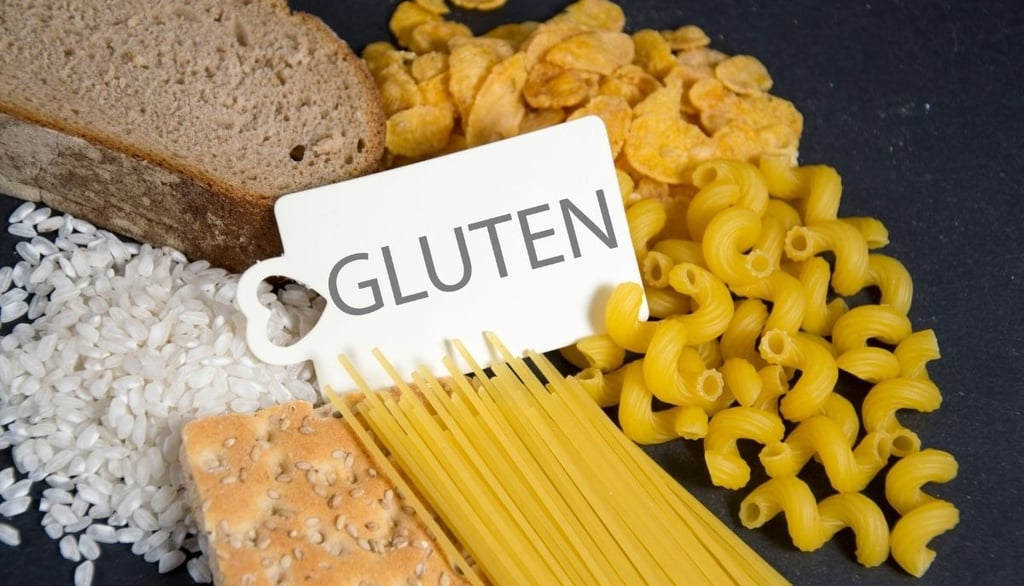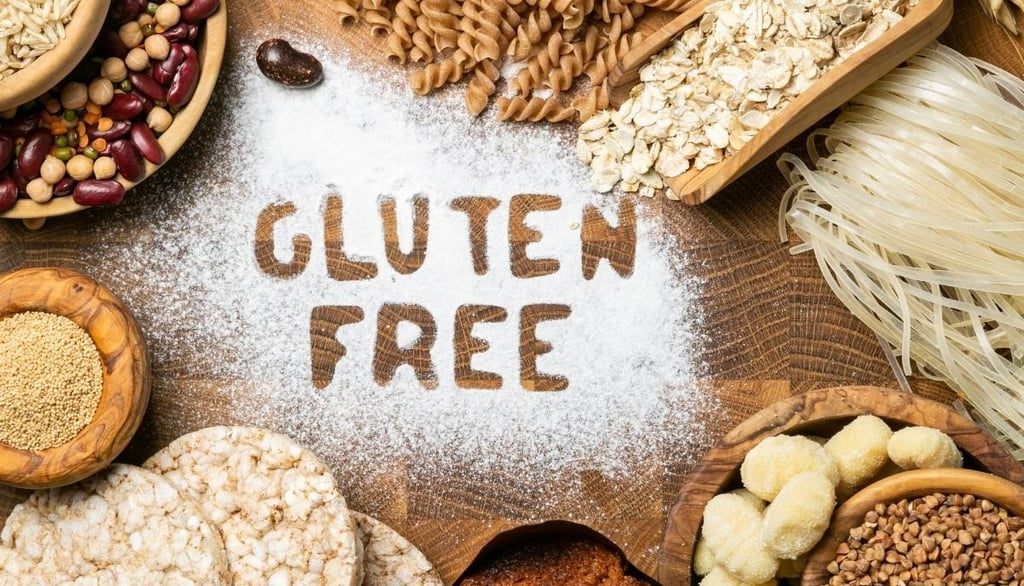Can Gluten Cause Joint Pain? Key Insights and Solutions
Discover how gluten can trigger joint pain, the role of inflammation, and how a vegan lifestyle may alleviate symptoms. Learn the best diet choices for healthy joints.
11/29/20243 min read


How Gluten Triggers Joint Pain
Gluten, a protein found in wheat, barley, and rye, can cause joint pain in individuals with sensitivities, primarily through inflammation. While gluten intolerance and celiac disease are the most well-known conditions linked to gluten, even those without a formal diagnosis may experience symptoms such as joint discomfort. This reaction occurs due to immune responses that cause inflammation in various parts of the body, including the joints.
Inflammation and Autoimmune Reactions
In people with celiac disease, gluten triggers an autoimmune response, leading to intestinal damage and systemic inflammation. This inflammation can also affect joints, causing pain, stiffness, and swelling. Even without celiac disease, gluten sensitivity might contribute to joint issues by promoting low-grade, chronic inflammation.
Non-Celiac Gluten Sensitivity and Joint Pain
Non-celiac gluten sensitivity (NCGS) can lead to joint pain through mechanisms still under investigation. Experts suggest that peptides from gluten can cross the gut barrier, triggering immune responses that lead to inflammation. This inflammation may manifest as joint discomfort, fatigue, and digestive issues.
Read more: Nutritional Yeast for Vegans


Vegan Diets: A Natural Solution for Reducing Joint Pain
Adopting a vegan lifestyle can significantly alleviate joint pain, as research shows that a plant-based diet reduces inflammation and improves overall health. A vegan diet eliminates potential inflammatory triggers found in animal products, such as saturated fats, and emphasizes anti-inflammatory foods rich in fiber, antioxidants, and phytonutrients.
Studies on Vegan Diets and Joint Health
Research from the Physicians Committee for Responsible Medicine highlights that participants following a low-fat vegan diet experienced a marked reduction in joint pain and inflammation compared to those on a standard diet. This improvement was attributed to the elimination of common inflammatory foods and the inclusion of nutrient-dense plant-based options.
Best Anti-Inflammatory Foods for Joint Health
A vegan diet rich in whole, plant-based foods can help reduce inflammation and joint pain. Key anti-inflammatory foods include:
Leafy Greens: Kale, spinach, and collard greens are rich in antioxidants.
Berries: Blueberries and strawberries contain powerful anti-inflammatory compounds.
Nuts and Seeds: Almonds, walnuts, chia seeds, and flaxseeds provide healthy fats and antioxidants.
Legumes: Lentils and chickpeas offer fiber and protein.
Whole Grains: Quinoa, brown rice, and oats are gluten-free options that can support gut health


The Role of Gut Health in Joint Pain
Gut health plays a crucial role in inflammation. A healthy gut microbiome can help regulate immune responses and reduce systemic inflammation. Fiber-rich plant foods support gut health by promoting beneficial bacteria growth, which can lower inflammation and alleviate joint symptoms.
FODMAPs and Gluten Sensitivity
FODMAPs, short-chain carbohydrates found in certain foods, may also contribute to joint pain in people with sensitive digestive systems. A low-FODMAP vegan diet can further reduce symptoms by eliminating both gluten and other potential irritants.
Is a Gluten-Free Vegan Diet Right for You?
While not everyone needs to avoid gluten, those with joint pain or autoimmune conditions may benefit from trying a gluten-free vegan diet. Consulting with a healthcare provider or nutritionist can help determine if this diet is suitable for you. Key steps include:
Gradual Elimination: Start by removing gluten-containing foods and monitoring symptoms.
Balanced Meals: Focus on whole, nutrient-dense plant foods.
Supplements: Ensure adequate intake of B12, iron, and other essential nutrients commonly found in animal products.
Conclusion: Embrace a Plant-Based Path to Joint Health
For those seeking relief from joint pain, a gluten-free vegan diet offers a promising path. By reducing inflammation through plant-based nutrition and focusing on whole, anti-inflammatory foods, you can support joint health and overall well-being. Transitioning to a vegan lifestyle not only benefits your joints but also promotes sustainability and ethical living, aligning with the core values of a plant-based way of life.
Read more: Transitioning to a Vegan Lifestyle
Pure Vegan Path
Explore plant-based living and delicious recipes.
Contact
Newsletter
info@pureveganpath.com
123-456-7890
© 2024. All rights reserved.
